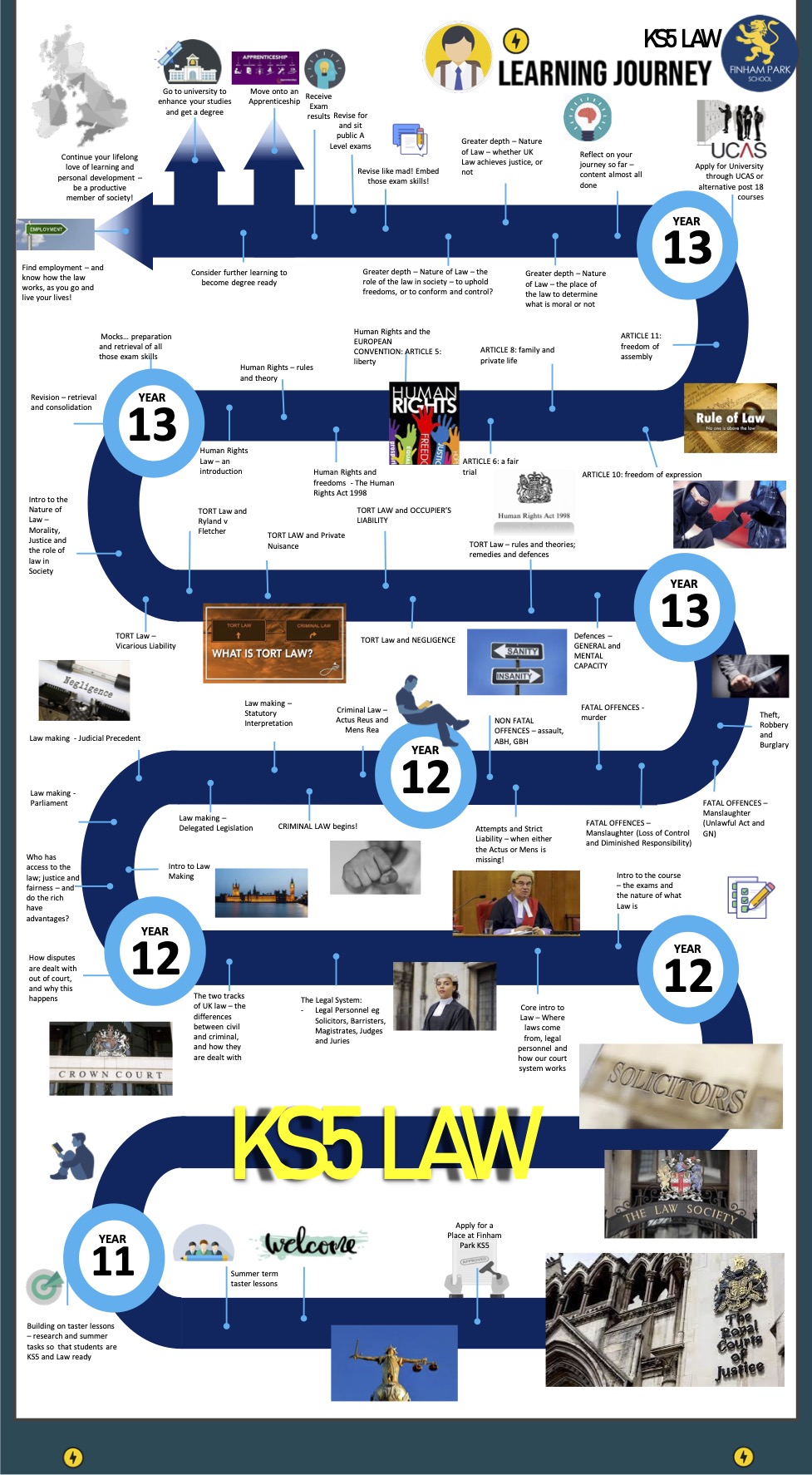Social Sciences (Law)
Welcome to the Law department
curriculum intentions and aims
The range of Social Sciences subjects (Law, Sociology, Psychology, Criminology) all have similar learning intentions; for students to understand more about human beings and how we make sense of the world around us; how and when we have personal responsibility for our choices and behaviours; how to live our best lives as individuals and as members of society, and to gain a deeper understanding of the reasons why as citizens we live in the ways we do and have the expectations we do. At its core, all Social Science is about people – how we function as individuals, and how we interact with others – so students develop an enquiring mind as to how they, and the rest of us do this – and how to do it better.
What topics do we study in Law?
The OCR Law syllabus covers many in depth topics. The three largest components of study involve Criminal Law (eg fatal, non-fatal and property offences) as well as criminal defences; Tort Law (eg including the law regarding negligence; and Human Rights law. Students also cover additional units looking at our legal system and processes (eg courts, and the people involved in UK Law) and also law – making, eg the role of Parliament, and the Doctrine of Precedent.
Why study Law?
Law is obviously a useful subject for those students who may wish to study Law at University, or who have future career aspirations in this area. In addition, Law suits those students with an interest in the workings of society and in current affairs and politics. The subject works well with other Social Sciences such as Sociology, Humanities subjects, and Business. You will develop useful skills including communication (discussion, debate, presentation etc), analysis, evaluation and research.

Course Outline
During this course, you will explore the various facets of British and European Law. You will understand how the elements of British Law work in practice and the theories behind them. You will learn legal cases, statutes and procedures in order to increase your knowledge of the legal process and critically assess their impact on the law.
The Legal System and Criminal Law – You will develop knowledge and understanding of the processes and people involved in the law and the changing nature of the legal system. Topics include civil and criminal courts, the legal professions and access to justice. You will also develop an understanding of the criminal law, including rules of criminal law, different offences and defences.
Law Making and Law of Tort – You will study law making methods within England and Wales and their underpinning concepts. You will develop an understanding of legal method and reasoning as used by lawyers and the judiciary. You will also develop your understanding of the law of tort, for example liability in negligence, occupiers’ liability and remedies.
Further Law – You will explore how the law interacts with society, technology, morality and justice. You will also learn the law surrounding human rights including their nature, protection and constitutional position under UK law. Specific rights and restrictions are explored in detail and the process of enforcement through the courts.
Law is a superb qualification highly regarded by universities and employers alike. It is especially useful for those looking to go into Law, Business, Finance, Politics or International Studies.
COurse requirements
Grade 6 in English Language and Literature are required. You will need a sense of commitment and a willingness to work hard at a subject that can sometimes be difficult at first. Law is a complex area and a great deal of specialist subject knowledge has to learnt, used and understood. You need to be highly organised and take an active interest in current affairs, in order to make connections between your learning and real legal cases.
For more information contact: e.nash@finhampark.co.uk and d.ratcliffe@finhampark.co.uk
Department Staff
| Head of Department | Ms E Nash |
| Mr D Ratcliffe |
